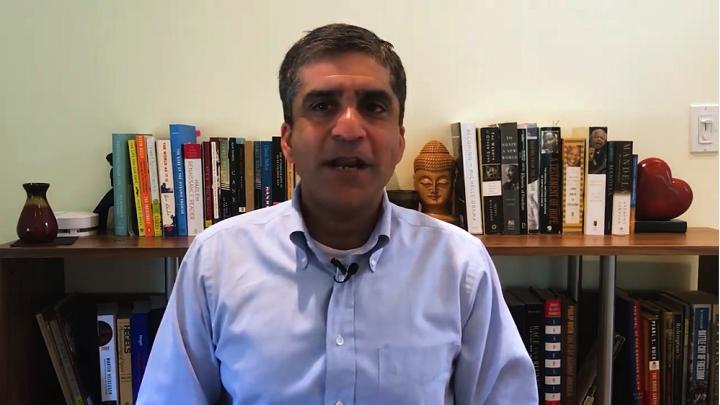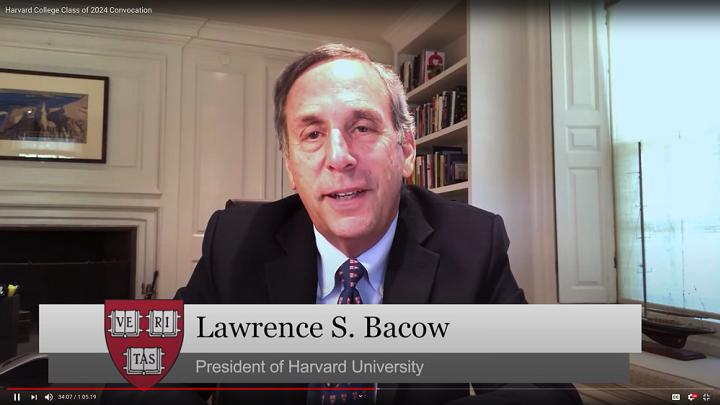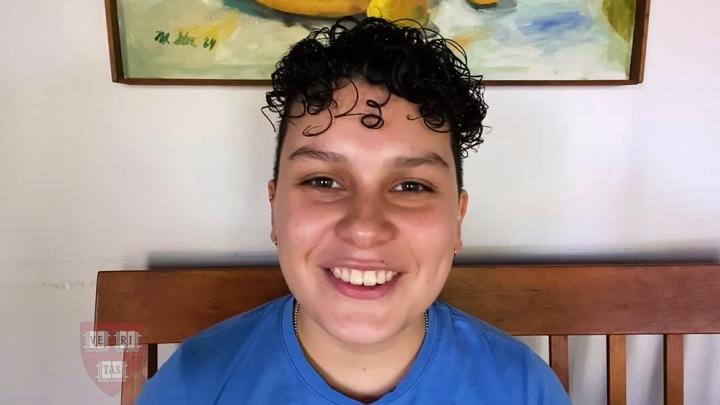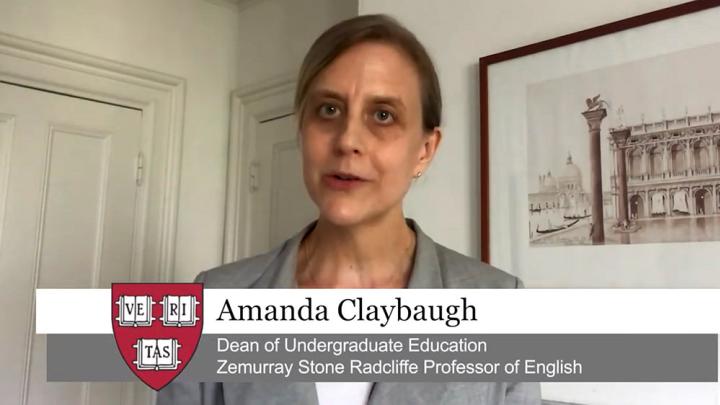At this year’s most unusual Freshman Convocation—broadcast on YouTube, with students living on campus instructed to “watch in your room/suite but…not gather in groups to watch”—dean of Harvard College Rakesh Khurana urged students to “commit to wearing a mask and practicing physical distancing to protect yourself, your families, your friends, and the well-being of thousands of people here at Harvard and in our surrounding communities. If we can’t get this right on campus, we will have to de-densify campus again,” he stressed, “and if we can’t get this right as a society, the pandemic will not be contained for a long time.”
“You are starting college at a peculiar moment for higher education and in our nation’s history,” Khurana said, “when our most deeply held values—truth, reason, civility, democracy—are at risk.” He continued: “In one of my favorite movies, the first Lord of the Rings movie, Frodo laments to Gandalf: ‘I wish the ring had never come to me. I wish none of this happened.’ And Gandalf responds: ‘So do all who live to see such times. But that is not for them to decide. All we have to decide is what we do with the time that is given to us.’
“I wish that COVID-19 didn’t exist,” Khurana continued. “I wish our society were a better place, and that you were starting college under different circumstances, but here we are. And so you will have to decide what to do with this time that has been given to you, and how you will use your considerable talents, and the opportunities available to you at Harvard, to create a better world than the one that is being handed to you….Harvard’s mission of educating citizens and citizen leaders for our society has never been more important, and we’re counting on you.”
“People are marching for justice”
Though the circumstances of this year are extraordinary, the content of the Convocation program remained much the same. Khurana welcomed new students with the signature piece of advice he gives annually: “Your four years here can be transactional, or they can be transformational,” he said. “A transactional education looks like this. You will pick your classes on the basis of what others are taking, you will pick them with your GPA in mind, you are reenacting the script that in many cases has worked for you up to this point….You will think about college the way you would think about a financial investment, as a clearly defined means to an end.” A “transformational” education, he explained, “is rooted in the ideal of intellectual exploration in the pursuit of connecting with people who are different from you and learning from them.”
“To embrace your own transformation may sound like a selfish pursuit when there is so much work to be done in our world,” he said, “especially at this moment. But it is actually the only way forward. We can only begin to change the world if we’re open to changing ourselves.”
After remarks from dean of students Katie O’Dair (who encouraged students to “find your in-between moments,” opportunities for spontaneity amid Harvard’s busyness) and a video montage of introductions by first-years around the world, President Lawrence S. Bacow urged students to “find your way to heal this world,” echoing Khurana’s calls to comply with COVID-19 guidelines and become involved in civic life: “For those of you who are eligible to vote in the upcoming elections, I will now give you your first homework assignment,” he said: “Register to vote, inform yourself of the candidates and the issues, and cast a ballot. It’s the first responsibility of citizenship in a democracy, and at Harvard we take this responsibility very seriously.
“This summer—just this week—the streets of cities across this country have been filled with protesters—demonstrations unlike any I have seen since I was your age,” Bacow continued. “People are marching for justice. They are marching in the name of George Floyd, Breonna Taylor, Ahmaud Arbery, and now Jacob Blake. They are marching against racism, and they are shining a light on systems and symbols in this country and elsewhere that perpetuate inequality.
“Always remember that anything worth doing tends to generate discussion and debate,” he added. “In difficult moments, I hope you’ll be generous and patient listeners, eager to understand those whose views you do not share—and I hope they pay you the same courtesy….No one has a monopoly on virtue. If we believe in truth, if we believe in Veritas, we must all be willing to be proven wrong.” (Bacow’s text appears here.)
“You belong at Harvard just as you are right now, no adjustments necessary”
Student speaker Dani Pérez ’21, co-chair of the First-Year Retreat and Experience (FYRE) program, told students to never be afraid to ask for help. Two months into freshman year, Pérez said, “I was still sleeping through lectures, forgetting to do my readings, and getting lost every time I stepped outside of the Yard. Each of these things could easily be solved by reaching out to someone, but all that I could focus on was that each slip-up made it so much harder to believe that I would ever be a good enough Harvard student. The more time that it took for me to get the hang of things, the more I felt like I was the admissions office’s single greatest fumble of all time.
“If I could travel back in time to my first year,” Pérez continued, “I would tell myself exactly what I want to tell each of you today: You belong at Harvard just as you are right now, no adjustments necessary….My hope for each of you is that throughout your first year, you will be compassionate and generous with yourself and each other through every single step of this journey. And when you find it a little difficult or perhaps impossible to reach for that compassion, know that you have a dream team of mentors, communities, staff, faculty, and upper-level students who are here to remind you of all the power that you hold, even at your lowest moments….Let yourself ask for help before things get hard.”
The perils of “busy culture”
The afternoon’s final speaker, dean of undergraduate education Amanda Claybaugh, gave a crisp, heartfelt address about the perils of “busy culture”: “a culture of students trying to do too many things,” she said, “in part because they want to, and in part because they feel they have to.” Busy culture “leaves [students] racing from one thing to another, without enough time to relax or rest, and with no time at all to deal with unexpected challenges, no time to recover from an illness, or fix a crashed hard drive, or heal a broken heart.” And busy culture, she emphasized, leaves students “feeling alienated from the very things that should give them meaning. They can’t commit to any one thing when they’re already falling behind on the next; they can’t build meaningful friendships when everyone’s scheduling coffees three weeks out.”
This is not just a source of stress, Claybaugh added, but “a threat to the College’s mission,” because it encourages students “to view everything they’re doing in transactional terms.” In contrast to the hurried pace of busy culture, “transformation takes time.” And so, she implored: “Make sure you have the time that transformation requires.”











